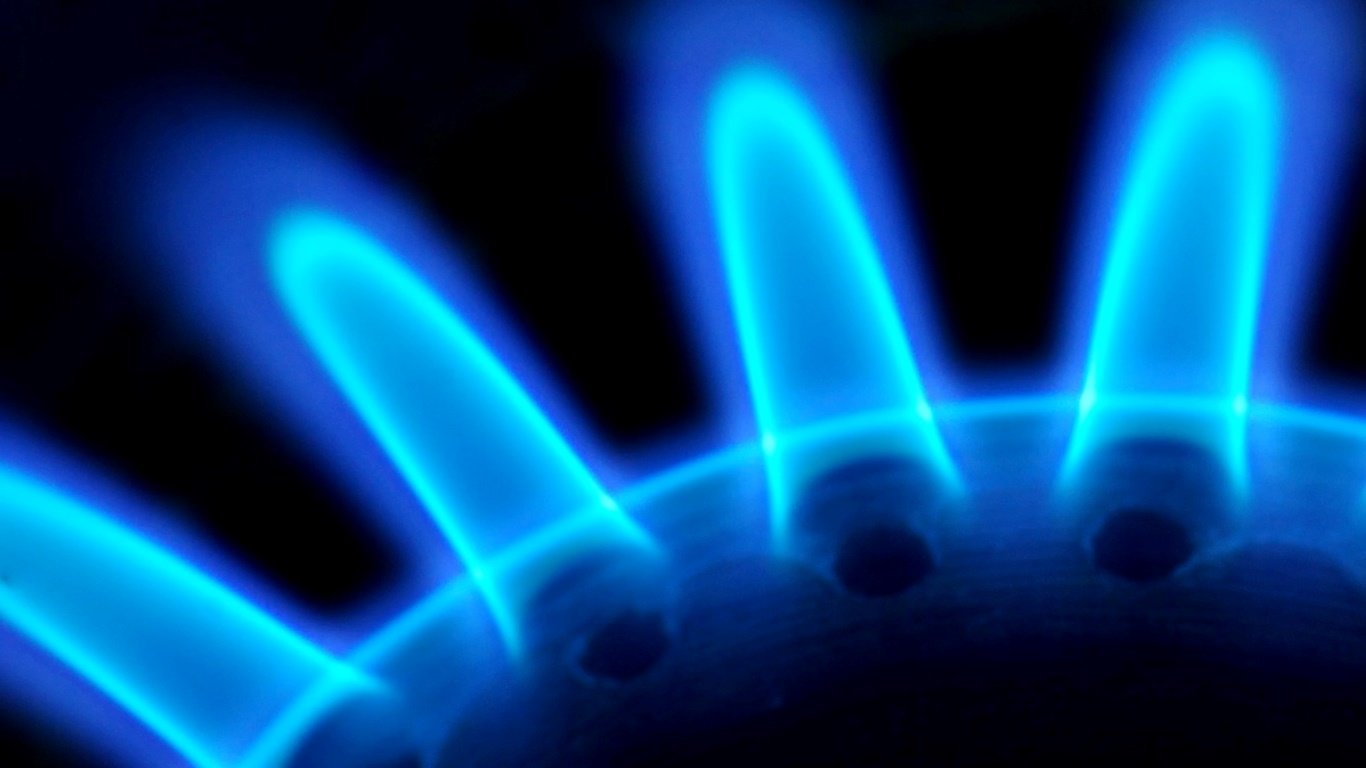Energy
Why Chesapeake Energy Stock Jumped More Than 400%

Published:
Last Updated:

Since opening at $12.91 a share on June 1, Chesapeake Energy Corp. (NYSE: CHK) stock had increased by around 440% to $69.92 by the closing bell on June 8. In the June 9 premarket trading session, the stock traded down more than 50% at around $32.80.
Has the stock market lost its mind? Is there hidden value in shares of Chesapeake Energy that investors have been missing for the past six years or so? Will a likely bankruptcy filing somehow make what was a penny stock just weeks ago one of the great comeback stories of all time?
In mid-April, Chesapeake completed a 1-for-200 reverse stock split as it struggled to maintain its listing on the New York Stock Exchange. These splits are usually bad news for investors. It’s often the last stop for a troubled company before bankruptcy and delisting.
About a month later, the company said in a filing with the U.S. Securities and Exchange Commission that there was “substantial doubt about the company’s ability to continue as a going concern.” With assets valued at around $7.8 billion and liabilities of $11.7 billion, preparing to file for bankruptcy was the obvious next step. Until, suddenly, it might not have been.
Crude oil prices have been rising since mid-April, from around $10 a barrel to nearly $40 recently. Analysts and investors see $40 as a break-even price for shale producers, and when prices reach that level, wells that have been shut-in can be restarted, and new drilling also may commence.
The higher price is almost entirely due to an agreement among OPEC+ members to extend production cuts of 9.6 million barrels through the end of July. The cartel and its partners have concluded that prices will continue to rise if production cuts are maintained as the global economy reopens following lockdown periods in many of the world’s largest economies. Rising demand and restricted supply means higher prices. The higher prices may have offered a ray of hope to Chesapeake investors.
Another fundamental, though, is cash, or the lack of it. Bloomberg reported on June 8 that Chesapeake had begun negotiating a debt restructuring, including skipping repayment obligations due to be paid on June 15. According to unnamed sources, the company would hand over a “majority of equity” to holders of a first-in, last-out (FILO) term loan.
FILO loans are created as a separate tranche within a company’s revolving credit facility. The loans are fully funded at closing (that’s the first-in part), and when it is repaid, the FILO funds cannot be reborrowed and no prepayments are required (that’s the last-out part). FILO loans are typically second in seniority to senior revolving loans.
According to Bloomberg’s sources, Chesapeake also is negotiating for debtor-in-possession (DIP) financing. Because DIP loans move to the top of the repayment list if a bankruptcy filing is made, they are usually financed by large creditors who expect to receive most of their original loans back.
Anytime there’s a massive increase in stock prices for companies that are on the verge (or already in bankruptcy protection), many investors see an opportunity to buy low and somehow be able to sell high. A once-solid NYSE-traded stock is available for relative pennies and this appears to present an opportunity for easy profits. Fear of missing out (FOMO) snares a lot of inexperienced retail investors.
However, making a profit by owning stock in a company that is in or headed for bankruptcy almost never happens. The principal reason, of course, is that shareholders are last in line to be repaid.
When a company like Chesapeake, with several billion more dollars of liabilities than assets, files for bankruptcy, there is essentially no chance that shareholders will receive a dime. Some firms may include a provision in their bankruptcy filings to issue new stock to existing shareholders, but those plans must be approved by the bankruptcy court and are often foregone in favor of more senior claims.
If, as most analysts expect, this Oklahoma City-based natural gas producer does file for bankruptcy, shares purchased in the past few days very likely will be worthless, along with all the other shares.
Take the quiz below to get matched with a financial advisor today.
Each advisor has been vetted by SmartAsset and is held to a fiduciary standard to act in your best interests.
Here’s how it works:
1. Answer SmartAsset advisor match quiz
2. Review your pre-screened matches at your leisure. Check out the advisors’ profiles.
3. Speak with advisors at no cost to you. Have an introductory call on the phone or introduction in person and choose whom to work with in the future
Take the retirement quiz right here.
Thank you for reading! Have some feedback for us?
Contact the 24/7 Wall St. editorial team.